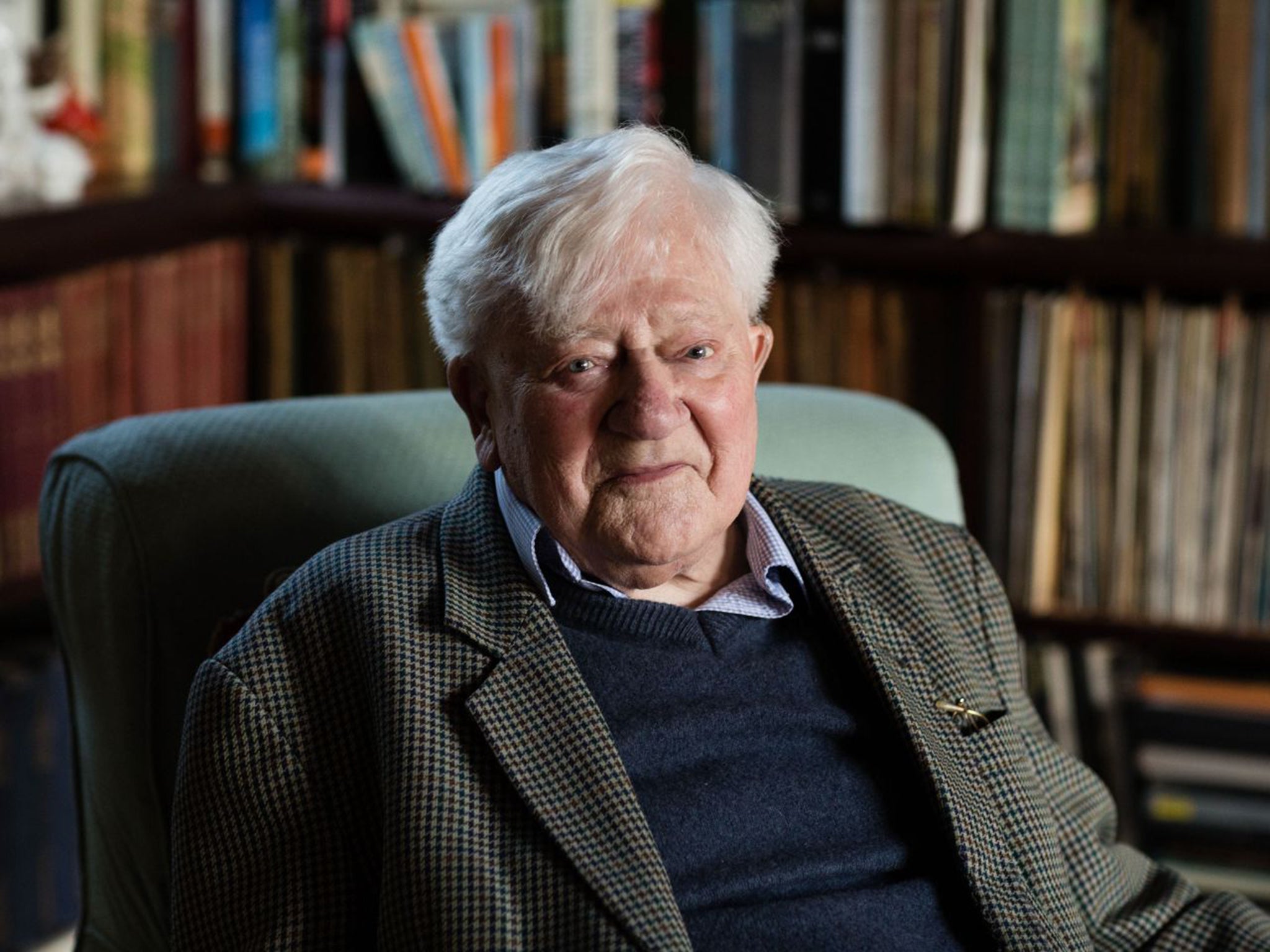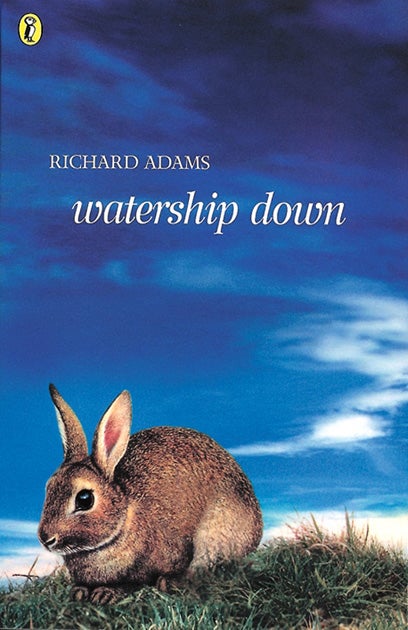Watership Down author Richard Adams plans to release his first picture book for five-year-olds
The Egg-box Dragon, which could be author’s last published work, describes adventures of a dragon made out of old egg cartons

Your support helps us to tell the story
From reproductive rights to climate change to Big Tech, The Independent is on the ground when the story is developing. Whether it's investigating the financials of Elon Musk's pro-Trump PAC or producing our latest documentary, 'The A Word', which shines a light on the American women fighting for reproductive rights, we know how important it is to parse out the facts from the messaging.
At such a critical moment in US history, we need reporters on the ground. Your donation allows us to keep sending journalists to speak to both sides of the story.
The Independent is trusted by Americans across the entire political spectrum. And unlike many other quality news outlets, we choose not to lock Americans out of our reporting and analysis with paywalls. We believe quality journalism should be available to everyone, paid for by those who can afford it.
Your support makes all the difference.More than four decades after Richard Adams’s story about a rabbit apocalypse terrified children around the world, the author of Watership Down is hoping to release his first picture book for five-year-olds.
The Egg-box Dragon, which could be the 95-year-old author’s last published work, describes the adventures of a dragon made out of old egg cartons. To write the book, Adams, a great-grandfather, repeated the trick that prompted his global bestseller: he raided his back catalogue of tales invented to entertain his daughters during long car journeys and at bedtime.
“The Egg-box Dragon was my children’s creation, really,” Adams recalls about a craft project dreamt up by one of his daughter’s primary school teachers in the late 1960s. “It was someone’s idea to make a dragon. The whole class used to amuse themselves by thinking up more and more ideas about Egg-box Dragon; how his tail was made; how his ears were made; what sort of stories he liked, and so on. I took it up and developed it, writing further stories about him.”
Veronique Baxter at David Higham, Adams’s literary agent, sent the text to Oneworld Publications, which recently released new illustrated versions of Watership Down and Shardik, Adams’s epic novel about a bear. Juliet Mabey, Oneworld’s editorial director, said The Egg-box Dragon was “under consideration” for publication. She added: “Several illustrators have expressed interest in taking on the task of bringing to vibrant life what could become an instant classic, including Korky Paul, best known for his iconic images of Winnie the Witch.”
I find a contemplative Adams sitting in a high-backed armchair in the sitting room of the Hampshire home he shares with his wife, Elizabeth. His face – and his memories – are lost in a well-thumbed copy of Watership Down, a 2005 US edition, dedicated to his daughters Juliet and Rosamond and that “road to Stratford-upon-Avon”. There are rabbits everywhere: miniature china figurines, bigger ceramic sculptures, even Lindt chocolate ones. In his library lair, a resplendent room bristling with books, a quilted image of Fiver the rabbit, possibly, staring into the sunset lies framed against the fireplace.
Even now, with a string of books behind him, the career civil servant-turned-publishing phenomenon still questions the lucky break that followed Rosamond’s pleas for him to write his rabbit tales. “I can’t quite get used to it, even now. I became a writer because the demand was there,” he says, taking his time to order his thoughts. It required perseverance to find a publisher: six turned him down before the eponymous Rex Collings took the gamble, printing just 2,500 copies of Watership Down in 1972. Reviews were rapturous; the book won the Carnegie Medal. A US edition followed, and Adams has never looked back.

The novel remains one of the biggest selling children’s books of all time. Adams, who is deaf in his right ear, was besieged by fans at a book signing in Blackwells’ Oxford branch last year, in the process allaying concerns his deteriorating health would be problematic. “I carried on until the end of the afternoon, and even then there were still people.”
Talk of Oxford reminds Adams of his undergraduate days: he read Modern History at Worcester College, although the outbreak of the war meant he completed his degree after he was demobilised. “Happiest time of my life,” he says, before segueing into darker flashbacks of his time as a parachutist in the Royal Army Service Corps. “So many of my friends were killed in the war. It was an awful thing, the war. Worst war there’s ever been.” His experience lives on in Watership Down: he based the quiet, polite Hazel and exhibitionist Bigwig on two fellow RASC officers.
A new generation will get the chance to meet the rabbits next year. The BBC is working on a new four-part animated series. It will be the third time the book has been immortalised on screen: the first, a 1978 animation voiced by John Hurt, Ralph Richardson and Richard Briers, is infamous for its terrifying battle scenes of ravaged rabbits.
Adams, who quit the civil service after writing Shardik, wishes he’d discovered his talents as an author earlier, but “I hadn’t got enough self confidence”. Asked for his advice for anyone contemplating writing a novel, he pauses for so long I wonder if he’s heard my question. He says eventually: “You’ll laugh at this. I think they should be discouraged and told to let it alone. Because that means that the ones who really, really must do it, succeed in spite of that discouragement.”
Join our commenting forum
Join thought-provoking conversations, follow other Independent readers and see their replies
Comments